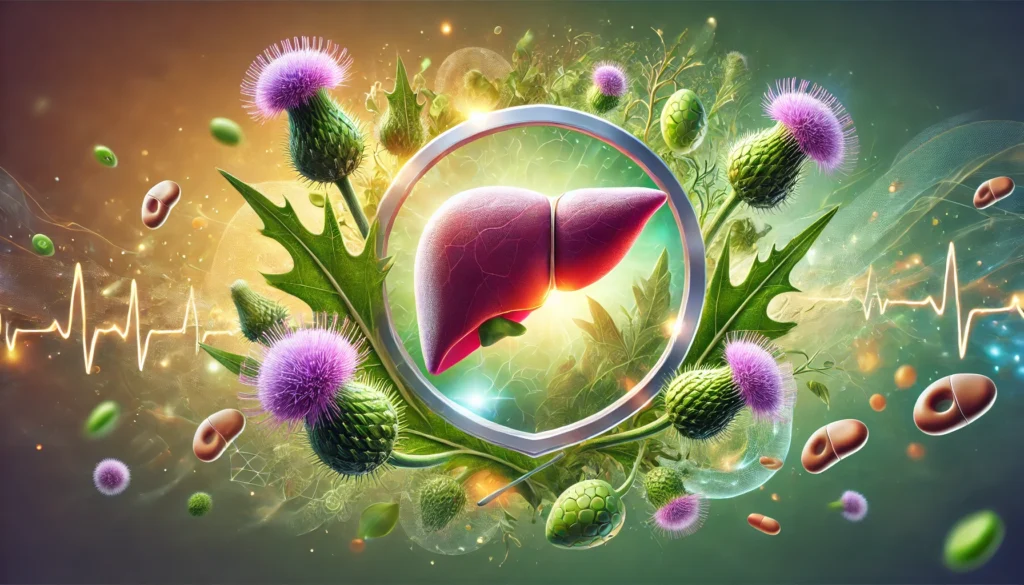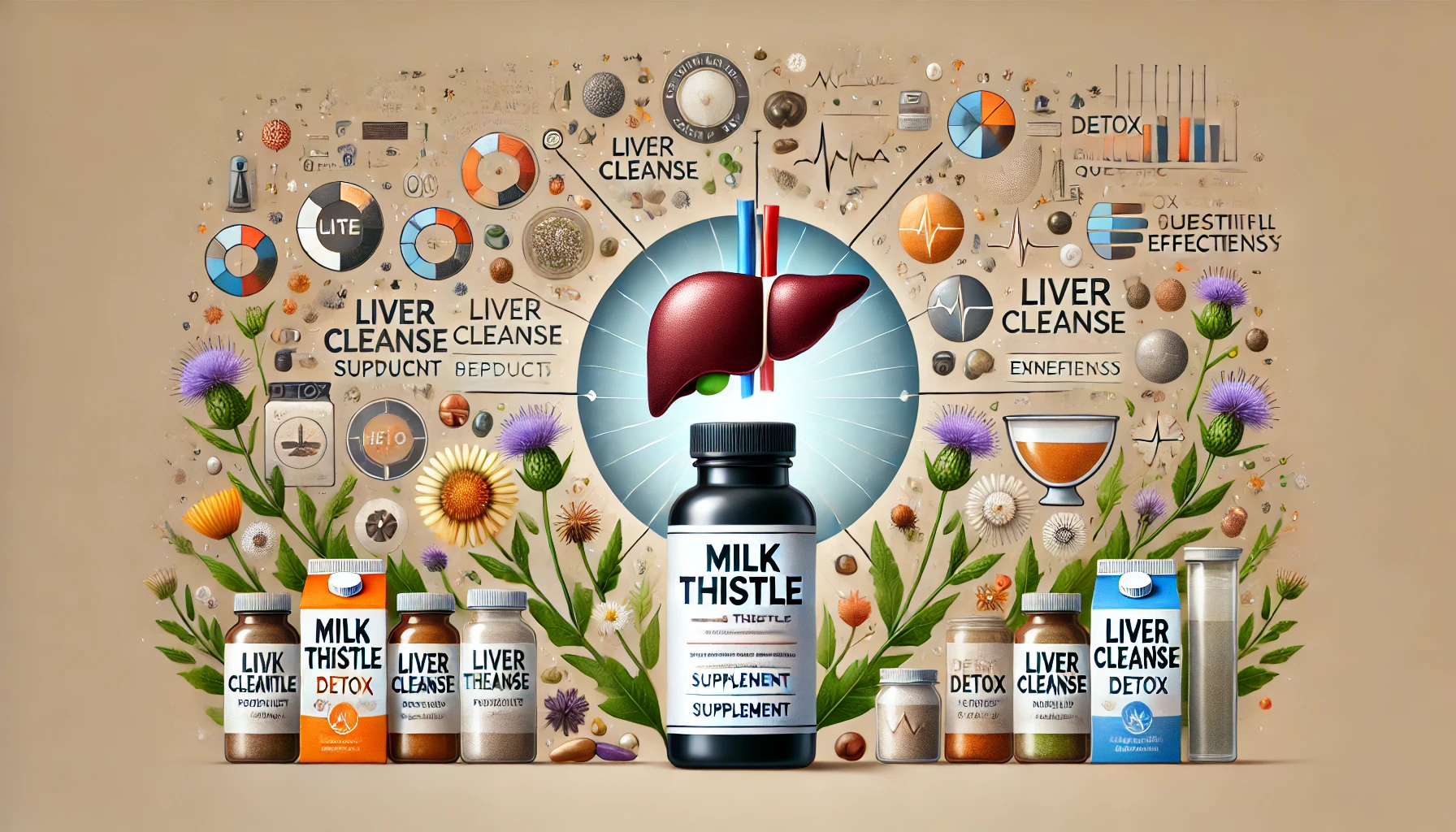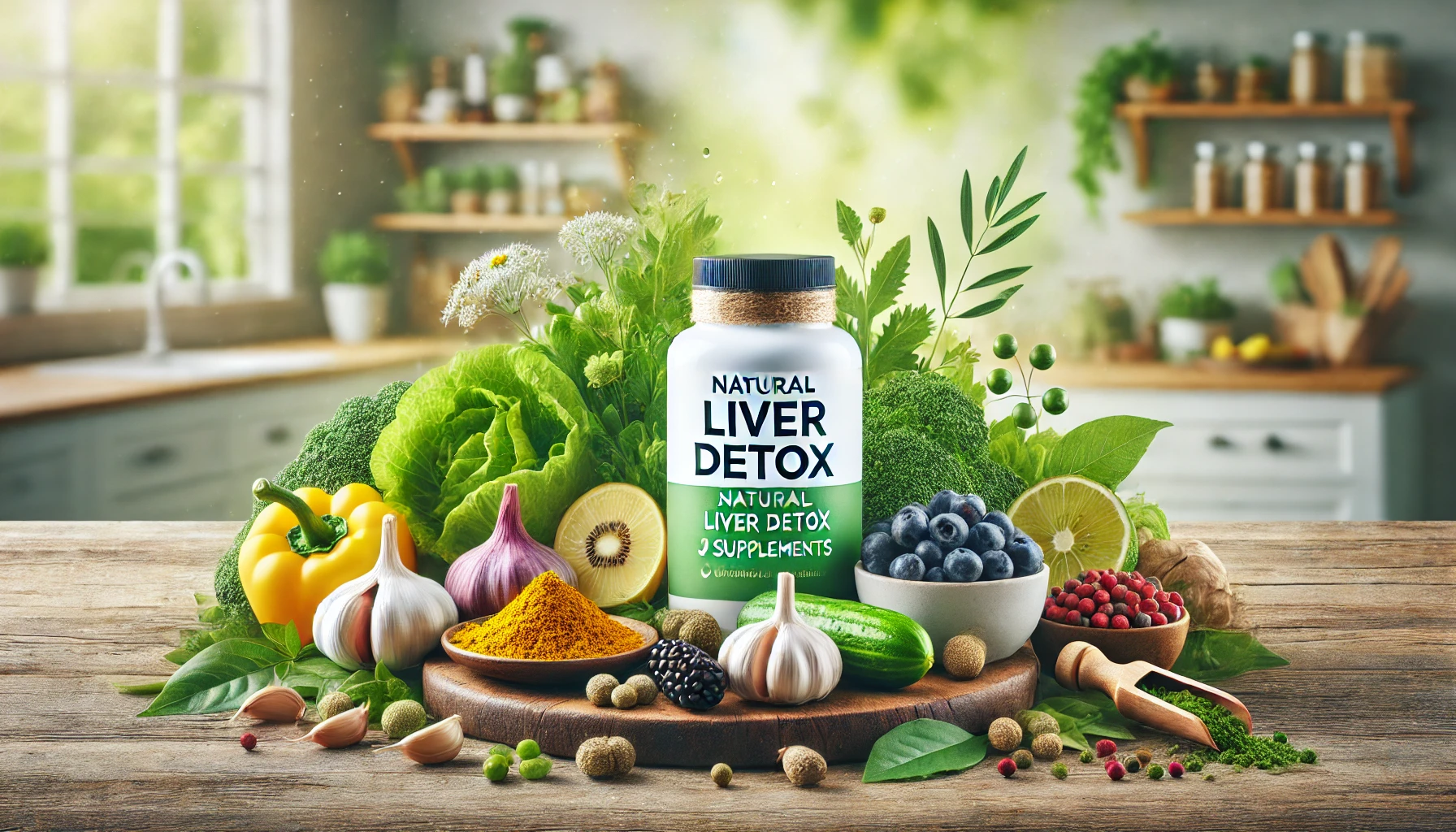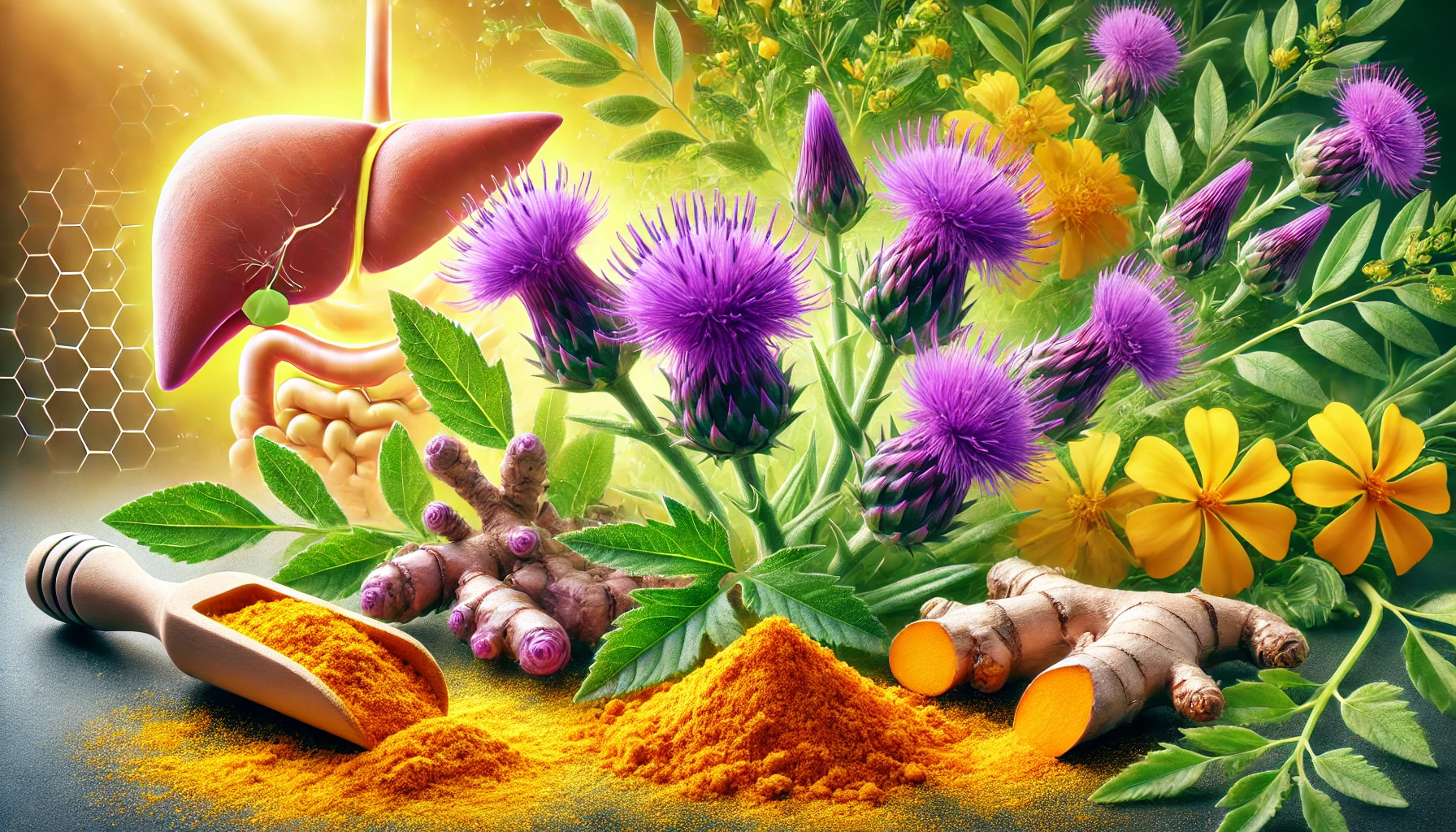Milk thistle (Silybum marianum) has been used for centuries as a herbal remedy, particularly for liver health. The plant’s active ingredient, silymarin, is believed to have potent antioxidant and anti-inflammatory properties, making it a popular choice for supporting liver function. This article explores the science behind milk thistle’s benefits for liver health, its potential uses, and answers to common questions.
- Supports Liver Health: This supplement contains 450mg of concentrated milk thistle extract, which promotes normal liver function and detoxification.
- High-Quality Herbal Ingredients: Made from non-GMO milk thistle extract, this natural liver support supplement is perfect for those seeking vegan-friendly and clean products.
- Immune System Support: The silymarin extract in the supplement helps boost immune function by neutralizing free radicals and reducing oxidative stress, supporting overall well-being.
- Easy to Digest and Absorb: These small tablets are easy to swallow, gentle on the stomach, and offer long-term liver health support.
- Trusted, Lab-Tested Quality: Manufactured in the USA and lab-tested, each batch ensures potency and safety, offering consumers peace of mind.

The Science Behind Milk Thistle and Liver Health
Milk thistle is best known for its role in promoting liver health. The liver is a vital organ responsible for detoxifying the body, metabolizing drugs, and producing important proteins. Silymarin, the active compound in milk thistle, is believed to protect liver cells from toxins and support liver regeneration.
How Silymarin Works:
Silymarin, a flavonoid complex composed of silybin, silidianin, and silicristin, acts as a potent antioxidant. It reduces oxidative stress by scavenging free radicals and enhancing the liver’s natural antioxidant defense systems, such as glutathione. Additionally, silymarin stabilizes cell membranes, preventing toxins from entering liver cells and promoting cell repair and regeneration.
Clinical Evidence:
Research has demonstrated milk thistle’s potential in supporting liver health. A study published in Phytotherapy Research found that silymarin can improve liver function in patients with chronic liver diseases, such as alcoholic liver disease (ALD) and metabolic dysfunction-associated steatotic liver disease (MASLD, formerly known as NAFLD). In a double-blind, placebo-controlled study, silymarin was shown to reduce liver stiffness and improve liver function markers in patients with MASLD over a 24-week period (PubMed) (BioMed Central).
Furthermore, silymarin’s anti-inflammatory properties make it effective in reducing liver inflammation, particularly in conditions like hepatitis C and drug-induced liver injury (DILI) (Xiahe Publishing).
Summary: “Milk thistle, with its active compound silymarin, provides antioxidant protection, supports liver cell regeneration, and has shown potential in improving liver function in conditions like ALD and MASLD.”
Potential Benefits of Milk Thistle for Liver Health
Liver Detoxification
Milk thistle is often marketed as a liver detoxifier. The liver is the body’s main detoxifying organ, processing toxins, alcohol, and other harmful substances. Silymarin is thought to enhance the liver’s ability to detoxify by stimulating protein synthesis and promoting the regeneration of liver tissue.
Research Findings:
Studies suggest that milk thistle may enhance the liver’s detoxification process. For example, research published in Lipids in Health and Disease indicates that silymarin can help reduce liver stiffness and improve liver function in patients with metabolic liver conditions (BioMed Central).
Summary: “Milk thistle may enhance liver detoxification by stimulating liver tissue regeneration and reducing elevated liver enzyme levels, thus supporting overall liver function.”
Protection Against Liver Damage
Silymarin has been studied for its protective effects against liver damage caused by alcohol, drugs, and environmental toxins. It is thought to stabilize cell membranes, making them less susceptible to damage from harmful substances.
Alcohol-Induced Liver Damage:
Several studies have explored milk thistle’s role in preventing alcohol-related liver damage. A systematic review published in the Journal of Clinical Gastroenterology highlighted that silymarin might have a protective effect on the liver by reducing oxidative stress caused by alcohol metabolism (Xiahe Publishing).
Drug-Induced Liver Damage:
Milk thistle is also used as an adjunct treatment for drug-induced liver damage. Research suggests that silymarin’s antioxidant properties can help protect the liver from damage caused by medications like acetaminophen (Tylenol), which is a common cause of acute liver failure (PubMed).
Summary: “Milk thistle may protect against liver damage caused by alcohol, drugs, and toxins by stabilizing cell membranes and reducing oxidative stress.”
Support for Chronic Liver Conditions
Milk thistle has been studied for its potential benefits in chronic liver conditions, such as hepatitis C and non-alcoholic fatty liver disease (NAFLD).
Hepatitis C:
Hepatitis C is a viral infection that causes liver inflammation, which can lead to severe liver damage over time. While some studies suggest that milk thistle may help improve liver function in people with hepatitis C, the evidence is mixed, and more research is needed (Xiahe Publishing).
NAFLD:
NAFLD is a condition characterized by fat accumulation in the liver. It is often associated with obesity and diabetes. Milk thistle has shown potential in reducing liver fat accumulation and improving liver enzyme levels in people with NAFLD, as reported by multiple studies, including a clinical trial published in Lipids in Health and Disease.
Summary: “Milk thistle may offer support for chronic liver conditions like hepatitis C and NAFLD by improving liver function and reducing liver fat accumulation.”
Dosage and Safety of Milk Thistle
Recommended Dosage
The appropriate dosage of milk thistle can vary depending on the condition being treated. However, a common dosage used in studies ranges from 200 to 600 mg of silymarin per day, typically divided into two or three doses.
Supplement Forms:
Milk thistle is available in various forms, including capsules, tablets, tinctures, and teas. Standardized extracts that contain 70-80% silymarin are often recommended for liver health.
Safety and Side Effects
Milk thistle is generally considered safe for most people when taken in recommended dosages. However, some individuals may experience mild side effects, such as gastrointestinal discomfort, nausea, or diarrhea.
Precautions:
People with allergies to plants in the Asteraceae family (such as ragweed, daisies, marigolds) should use milk thistle with caution. Additionally, milk thistle may interact with certain medications, so it’s important to consult with a healthcare provider before starting supplementation.
Summary: “Milk thistle is generally safe when taken in recommended dosages, with a typical dosage ranging from 200 to 600 mg of silymarin per day. Mild side effects may occur, and individuals with allergies or those taking certain medications should exercise caution.”
FAQs
How long does it take for milk thistle to show benefits for liver health?
The time it takes for milk thistle to show benefits can vary depending on the individual and the severity of the liver condition. Some people may notice improvements in liver enzyme levels within a few weeks, while others may need to take it for several months.
Can milk thistle cure liver diseases?
Milk thistle is not a cure for liver diseases, but it may help support liver health and improve liver function in some individuals. It should be used as part of a comprehensive treatment plan under the guidance of a healthcare provider.
Is milk thistle safe for long-term use?
Milk thistle is generally considered safe for long-term use when taken in recommended dosages. However, it’s important to periodically reassess its use with a healthcare provider to ensure it’s still appropriate for your health needs.
Where can I find quality milk thistle supplements?
When choosing a milk thistle supplement, look for products that are standardized to contain 70-80% silymarin.
The Final Note
Milk thistle has been widely studied for its potential benefits in supporting liver health. While it is not a cure for liver diseases, it may offer protective effects and support liver function in those with liver conditions. As with any supplement, it’s important to consult with a healthcare provider before starting milk thistle, especially if you have existing health conditions or are taking medications.
In summary, milk thistle is a promising herbal remedy for liver health, with its active compound, silymarin, showing potential in protecting liver cells, enhancing detoxification, and supporting overall liver function. However, more research is needed to fully understand its long-term benefits and optimal usage.






